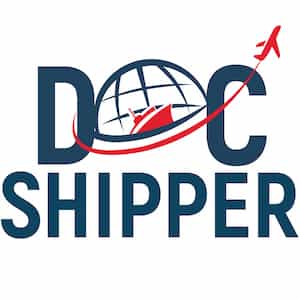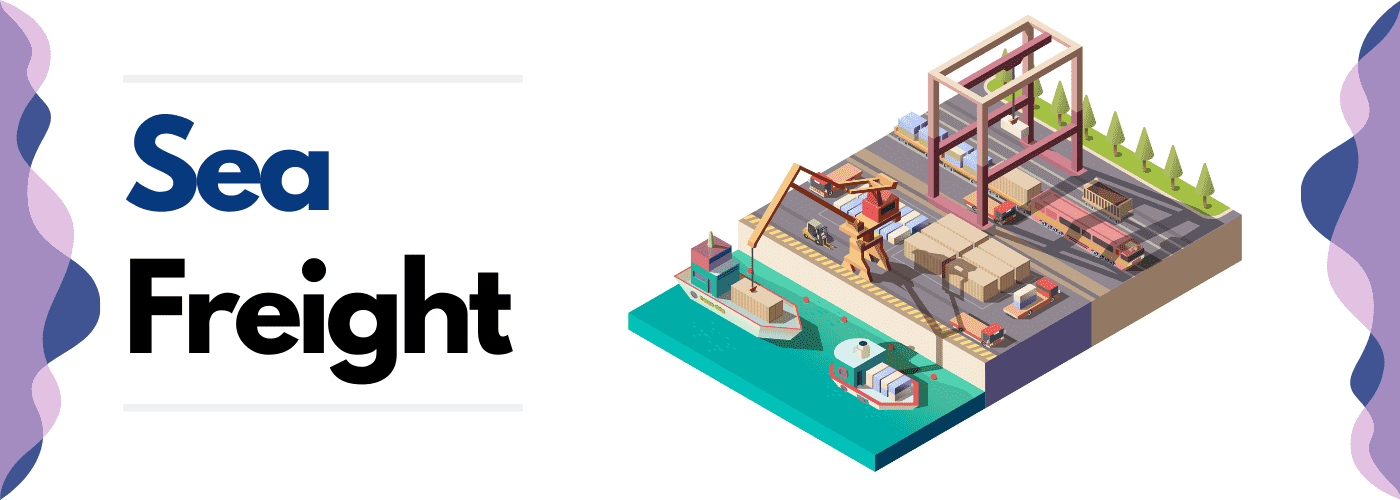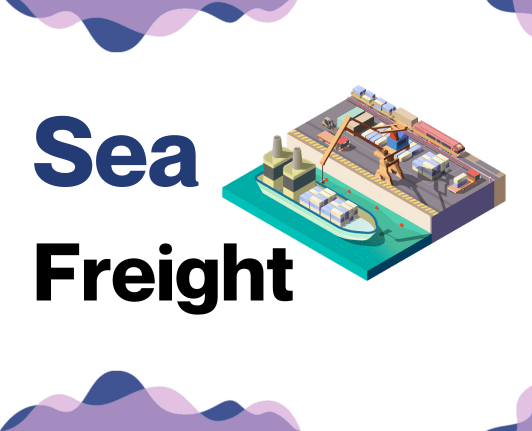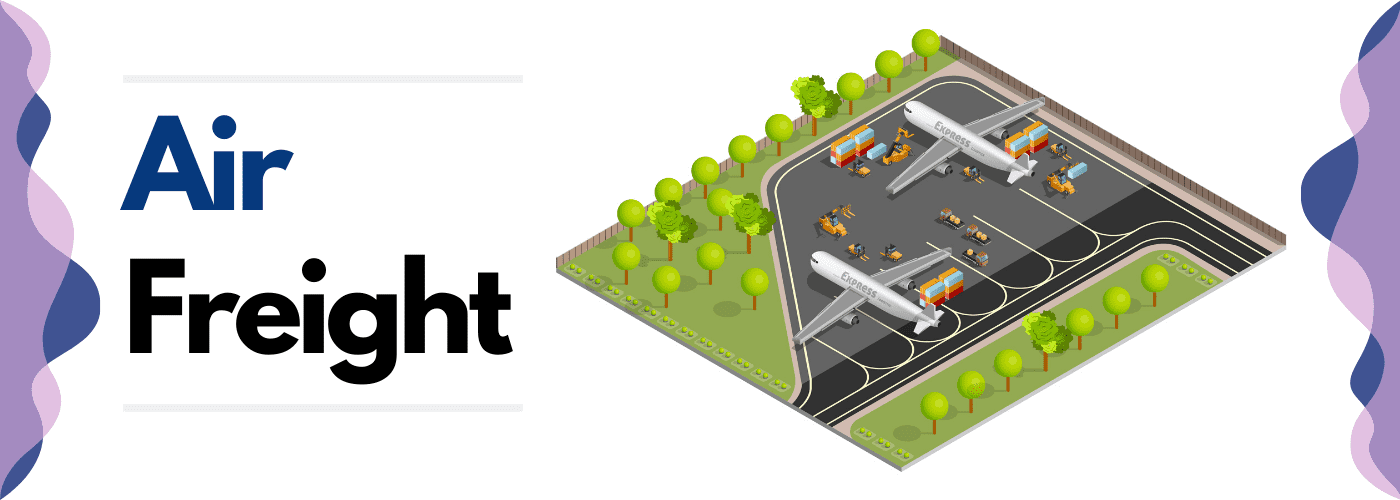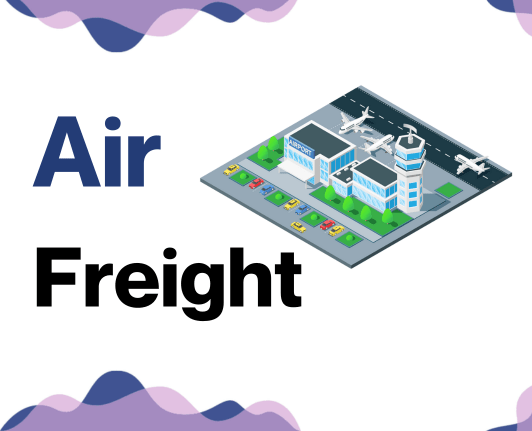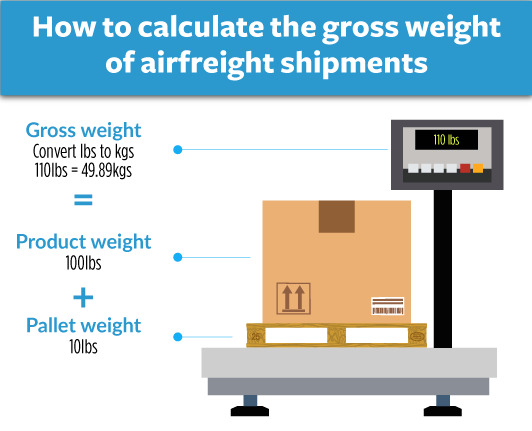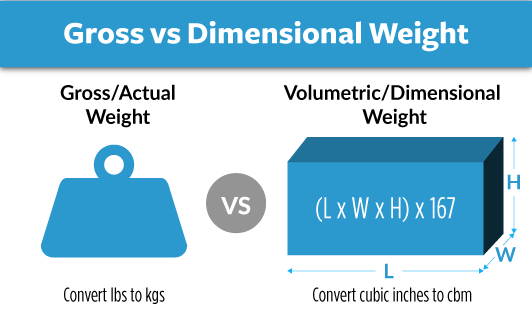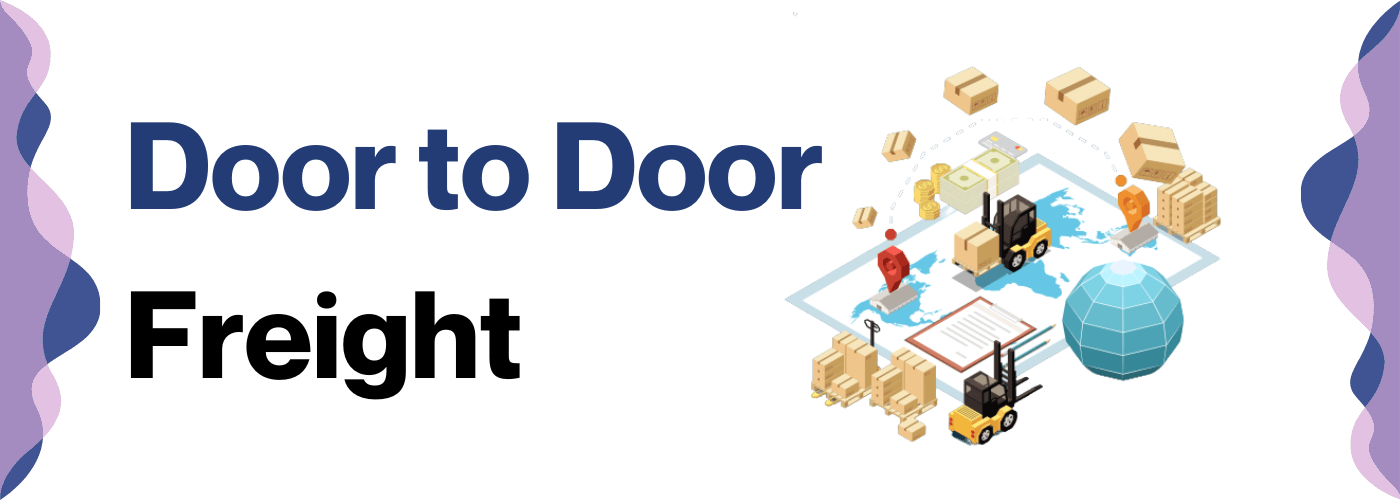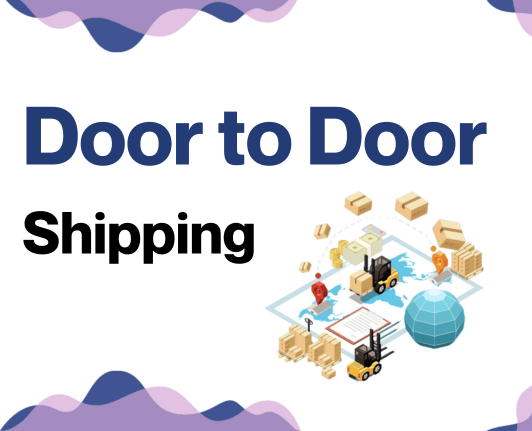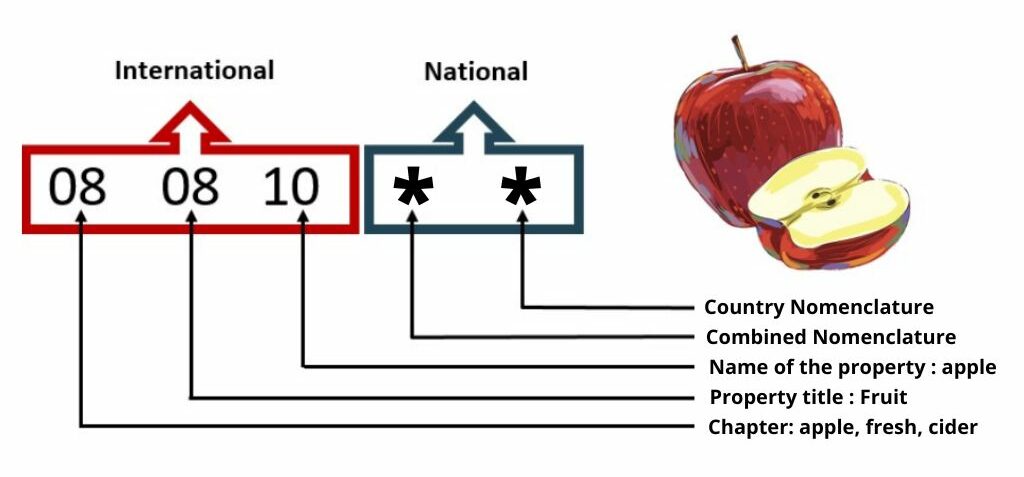What do Malaysia and Cyprus have in common? Dig down into the world of freight! Many businesses struggle to wrap their heads around fluctuating rates, unexpected delays, and ever-changing customs regulations when shipping between these two nations. In this comprehensive guide, we’ll break it all down for you. We’ll discuss various freight options - air, sea, road, or rail - alongside the complexities of customs clearance, duties, and taxes. Each section is filled with knowledge and advice, drawn from our vast experience, tailoring solutions specifically for businesses. If the process still feels overwhelming, let DocShipper handle it for you! We are experts in international freight forwarding, turning your shipping challenges into successes. Let’s explore this journey together and make your ship sail smoothly between Malaysia and Cyprus.
Table of Contents
Which are the different modes of transportation between Malaysia and Cyprus?
Wondering how to connect your goods between Malaysia's bustling street markets and the Mediterranean allure of Cyprus? The answer lies in finding the right transport method. Given the vast distance and multiple countries in-between, air and sea freight emerge as practical choices. Beyond transit times, you'll need to examine things like cost, cargo size, and product nature. Imagine taking a flight versus a cruise. Speed or scenic route? Each has its benefits. Determining the best mode will set sail for a smooth and efficient trade route to bridge these vibrant economies. Let's dive deeper to find what suits your needs best.
How can DocShipper help?
Ease your Malaysia-to-Cyprus shipments with DocShipper! We streamline your freight, handle customs procedures, and ensure your cargo's journey is seamless, whether it be by air, sea, rail, or road. Got questions? Consult our experts for free. Want an estimate? Expect a cost breakdown in your inbox in less than 24 hours. Contact us now!
DocShipper Tip: Sea freight might be the best solution for you if:
- You're dealing with hefty quantities or oversized goods. Sea transport is your go-to for maximizing space without stretching your budget.
- Time sensitivity isn't a concern for your shipment. Ocean freight is known for its leisurely pace, especially when compared to the speed of air or rail.
- Your supply chain connects key international harbors. This positions you to take full advantage of a wide-reaching network of ocean trade routes.
Sea freight between Malaysia and Cyprus
The trade route between Malaysia and Cyprus is bustling with activity. It's like a well-oiled machine, where huge vessels glide between Port Klang near Kuala Lumpur and Limassol Port in Cyprus, carrying everything from raw materials to finished products. Leveraging ocean shipping's cost-effectiveness is often ideal for high-volume goods. Think of it as a bus service for your goods – not exactly Formula 1 speed, but can carry a large crowd affordably.
But let's face it – the journey isn't without bumps. If you've ever felt like you're playing a game of checkers where the rules keep changing, that's pretty much the reality of shipping between these two countries. This can make you sweep your chessboard clear in frustration! Misunderstandings abound, from customs rules in Nicosia to paperwork in Penang. It's a wild ride, and one not suited to learning on the fly. But here’s the good news: with a little insider know-how, avoiding mistakes and capitalizing on trade best practices can become second nature. Hang in there, as this guide is designed to make your shipping journey smoother.
Main shipping ports in Malaysia
Port Klang
Location and Volume: Situated in Selangor, Port Klang is Malaysia's busiest port with a shipping volume of over 13.2 million TEUs.
Key Trading Partners and Strategic Importance: China, Singapore, Indonesia, and India are the key trading partners. The port is of strategic importance given its capability of handling a large volume of intermodal traffic.
Context for Businesses: If your business plans to tap into these markets or handle large volumes of goods, including Port Klang in your logistics plan could be beneficial. It is known for efficient handling and good connectivity to various rail and road networks.
Penang Port
Location and Volume: Located in the Northwest region, Penang Port is Malaysia's oldest port serving a volume of over 1.52 million TEUs.
Key Trading Partners and Strategic Importance: Currently, this port serves primarily as a feeder port with links to major ports in the region, such as Port Klang, and Singapore.
Context for Businesses: If your shipping strategy involves feeder ports for transporting goods to or from smaller regional ports, consider Penang Port. It offers a diversified range of services including cargo handling, shipping, and ferry services.
Johor Port
Location and Volume: Found in the southern part of Peninsular Malaysia, Johor Port is a multi-purpose port with capabilities to handle diverse types of cargo, processing around 37.3 million freight weight tonnes (FWT).
Key Trading Partners and Strategic Importance: This port plays a crucial role in trades with Indonesia, India, China, and Thailand. It's also a free trade zone with contributions to the chemical, palm oil, and automotive industry.
Context for Businesses: If your organization is involved in any industry requiring the use of a multi-purpose and free trade port, Johor Port’s versatile handling capacity can certainly support your needs.
Port of Tanjung Pelepas
Location and Volume: Situated in Johor, near the eastern end of the busy Straits of Malacca, the Port of Tanjung Pelepas is the third busiest port of Malaysia, with a volume exceeding 9.1 million TEUs.
Key Trading Partners and Strategic Importance: Significant trading includes China, Singapore, USA, and Europe. It's a major hub port, known for its efficient terminal operations.
Context for Businesses: If your business frequently deals with transshipment or large-scale operations, Port of Tanjung Pelepas might be a key player in your logistics plan with its impressive terminal facilities.
Bintulu Port
Location and Volume: Bintulu Port, located in Sarawak, is a key hub for energy-intensive industries, handling over 50 million FWT.
Key Trading Partners and Strategic Importance: Notably, it serves Petronas’s Malaysia Liquefied Natural Gas (MLNG) complex, the world's largest LNG production facility on a single site.
Context for Businesses: If your business deals with energy products, particularly LNG, Bintulu Port is an essential port given its dedicated and specialized facilities.
Kuantan Port
Location and Volume: Found on the east coast of Peninsular Malaysia, Kuantan Port mainly handles bulk cargo and liquid products, facilitating over 26.6 million FWT annually.
Key Trading Partners and Strategic Importance: This port is fundamental for trades with India, China, and Indonesia. Its expansion project has enhanced its capacity.
Context for Businesses: Kuantan Port can play a significant role if your business is largely involved in bulk and liquid trade, owing to its enhanced capacity and dedicated facilities.
Main shipping ports in Cyprus
Port of Limassol
Location and Volume: The Port of Limassol, located on the island's southern coast, is the largest port in Cyprus, serving both freight and passenger lines. It handles a significant shipping volume, being the main logistics hub in and out of the country, which often incorporates substantial TEU.
Key Trading Partners and Strategic Importance: The Port of Limassol plays a crucial strategic role in the maritime trade within the Eastern Mediterranean, contributing significantly to Cyprus’s economy. The port boasts strong trade ties with countries such as Greece, Egypt, and the UK.
Context for Businesses: If your business has a major focus on the Mediterranean trade routes, or if you’re aiming for growth and expansion within Europe or Middle-Eastern markets, the Port of Limassol could be a key part in your shipping strategy. Not only is it geographically advantageous, but it represents a vast network of trade partners your business could potentially tap into.
Port of Larnaca
Location and Volume: Situated on the eastern coast of Cyprus, the Port of Larnaca has historically been a less busy commercial port. However, it is increasingly becoming a key player in freight shipping, as the government of Cyprus has recently decided to prioritize its growth.
Key Trading Partners and Strategic Importance: In addition to facilitating goods exchange with the same key partners as Limassol, Larnaca is strategically positioning itself for better trade relations with the Levantines and the Balkans. Moreover, given its geographical proximity and recent developments, it’s on its way to becoming a critical node in the Eastern Mediterranean.
Context for Businesses: If reaching new markets is part of your business model, the Port of Larnaca may offer exciting opportunities. The port’s development plans suggest a significant increase in the shipping volume and improved service in the coming years, offering businesses an attractive alternative or complement to the higher-traffic Limassol port.
Port of Vasiliko
Location and Volume: The Vasiliko Port, located near the city of Limassol, is Cyprus's newest and third most important port. While it is mainly used for importing fuel and other commodities, the port is gradually expanding its operations in an effort to increase TEU capacity.
Key Trading Partners and Strategic Importance: Similar to Larnaca and Limassol ports, Vasiliko has the potential to serve the same key trading partners. What sets it apart is its specialized focus on commodities and fuel trade given its association with the nearby energy hub.
Context for Businesses: If your business revolves around commodities or energy, Vasiliko could be advantageous. Its rising prominence in Cyprus's energy landscape indicates strong growth potential and specialization that your business could leverage in its shipping strategy.
Should I choose FCL or LCL when shipping between Malaysia and Cyprus?
Are you struggling to decide whether to opt for Full Container Load (FCL) or Less than Container Load (LCL), also known as 'consolidation', for your sea freight from Malaysia to Cyprus? We get it. The decision isn't just about cost; it affects delivery schedules and the overall success of your shipping cycle too. This section breaks down these two key options, simplifying the tangle of sea freight for you. Let us guide you to make an informed decision that perfectly fits your specific shipping requirements. Let's dive in!
LCL: Less than Container Load
Definition: LCL (Less than Container Load) Shipping refers to sharing a container with other shippers when you don't have enough cargo to fill an entire container. This method consolidates multiple shipments into one container, making it price efficient and flexible for low volume shipments.
When to Use: LCL is perfect when your cargo is less than 13/14/15 CBM, offering the affordability of sharing space while still providing reliable service. So, if your goods don't demand a full container, LCL might be a smart choice.
Example: For instance, a small business that manufactures artisanal soap in Malaysia may want to expand their market to Cyprus but only has enough product to partially fill a container. By selecting LCL, they can share container space with other businesses, thus reducing the cost compared to booking a full container.
Cost Implications: LCL shipping allows cost savings as you only pay for the space you use. While the per-unit freight cost may be higher, the overall cost is usually lower due to shared expenses. However, keep in mind there may be added handling charges due to the extra logistics of consolidating and de-consolidating the LCL shipment.
FCL: Full Container Load
Definition: FCL, or Full Container Load, is a type of ocean freight where a shipment occupies an entire container. It's often referred to as 'fcl shipping.'
When to Use: It's particularly beneficial if your cargo volume exceeds 13-14-15 cubic meters (CBM). The robust security of FCL comes from the containers remaining sealed from origin to destination, minimizing risks associated with handling.
Example: Imagine your business specializes in exporting large quantities of palm oil from Malaysia to Cyprus. The volume of your shipment fills a 20'ft or 40'ft fcl container completely making fcl shipping the ideal choice for you.
Cost Implications: Due to the high-volume attribute of fcl shipping, the cost per unit is lower in comparison to other methods, making the fcl shipping quote cheaper overall for large quantities. However, it's essential to consider that you are paying for the entire container's space, whether you use it fully or not - affecting your shipping economy if the container is not fully utilized.
Unlock hassle-free shipping
Shipping internationally from Malaysia to Cyprus? Remove the guesswork with DocShipper! Our ocean freight experts are on hand to guide through both consolidation and full container options. They'll take into account your load volume, delivery timelines, and budget factors. They're committed to coordinating the smoothest, most cost-effective cargo transportation possible. Don't leave your freight to chance! Contact us for a free estimation and experience a hassle-free shipping journey.
How long does sea freight take between Malaysia and Cyprus?
On average, sea freight between Malaysia and Cyprus complete their voyage in 15 to 33 days. This timeframe, however, relies on numerous aspects such as the specific seaports involved, the weight of the shipment, and what type of goods you are shipping. For an accurate and personalized quote considering all these factors, it's recommended to reach out to an experienced freight forwarder like DocShipper.
| Ports in Malaysia | Ports in Cyprus | Average Transit Time (Days) |
| Port Klang | Limassol Port | 25 |
| Port of Tanjung Pelepas | Larnaca Port | 28 |
| Penang Port | Paphos Port | 30 |
| Bintulu Port | Famagusta Port | 33 |
Remember, the typical journey times between ports can vary depending on a range of factors, so it's best to seek a bespoke quote for the most accurate information.
How much does it cost to ship a container between Malaysia and Cyprus?
Estimating an exact shipping cost for a container between Malaysia and Cyprus is comparable to predicting the weather—it hinges on numerous variables. Factors such as the Point of Loading, Point of Destination, the carrier chosen, the type of goods, and even monthly market fluctuations, influence ocean freight rates. The cost can range drastically, from just a few hundred to a few thousand dollars per CBM. But fear not, our team of shipping specialists is here to guide you through this fluctuating landscape. Working with you on a case-by-case basis, we strive to provide the most competitive rates tailored to your unique shipping needs. After all, every shipment is a journey—and we're with you every step of the way.
Special transportation services
Out of Gauge (OOG) Container
Definition: An OOG container is designed for goods that surpass standard container dimensions due to their oversized or irregular shape.
Suitable for: Out of gauge cargo such as large machinery, vehicles, or construction materials.
Examples: Industrial equipment, windmill blades, or a yacht.
Why it might be the best choice for you: If your cargo items are extra tall, long, or wide, an OOG container provides the flexibility and space that standard containers lack.
Break Bulk
Definition: Break bulk refers to the method of shipping goods individually, not in containers. Each item is separately loaded and unloaded from the shipping vessel.
Suitable for: Bulk or loose cargo load that's not containerized.
Examples: Steel beams, wood logs, or large coils of metal.
Why it might be the best choice for you: It allows flexibility in handling complex or larger oversized cargo that doesn't fit into containers, making the transportation process easier and safer.
Dry Bulk
Definition: Dry bulk shipping is used for homogenous, un-packaged goods that are shipped in large quantities.
Suitable for: Commodity items such as grains, coal, or iron ore.
Examples: Wheat, soybeans, or barley.
Why it might be the best choice for you: This is an economical option for you if you're shipping a massive amount of loose, dry goods, as it takes advantage of economies of scale.
Roll-on/Roll-off (Ro-Ro)
Definition: In Ro-Ro shipping method, cargo that can be driven (or towed) is rolled onto and off the ro-ro vessel without the need for cranes.
Suitable for: Motorized cargo or equipements that are on wheels.
Examples: Cars, trucks, trailers, or buses.
Why it might be the best choice for you: If your goods are wheeled vehicles or machinery, the Ro-Ro method allows for a simple and fast loading and unloading process, saving time and costs.
Reefer Containers
Definition: Reefer containers are temperature-controlled containers used to transport temperature-sensitive cargo.
Suitable for: Perishable goods or any cargo that requires a specific temperature.
Examples: Fruits, vegetables, dairy products, or pharmaceuticals.
Why it might be the best choice for you: If your business deals with perishable items that require a maintained temperature during transit, reefer containers provide the right environment to ensure the quality of your goods.
We hope the above information will help you make the best shipping decision for your business. To learn more about these options, get personalized advice, or request a free shipping quote within 24 hours, feel free to contact us at DocShipper. We are here to simplify your international shipping experience.
DocShipper Tip: Air freight might be the best solution for you if:
- You're pressed for time or facing a non-negotiable deadline. Air freight delivers unparalleled speed when it comes to transit times.
- Your shipment is modest in size, falling under 2 CBM. Air freight is particularly well-suited for these smaller consignments.
- Your supply chain includes destinations that are off the beaten maritime or rail paths. Air freight gives you access to a comprehensive global airport network.
Air freight between Malaysia and Cyprus
When it comes to speed and reliability in shipping between Malaysia and Cyprus, air freight is king. Imagine urgently needing to transport a crate of top-tier wristwatches or a batch of critical microparts for electronics – flights prove indispensable. Unlike other methods, air freight assures quick transit times and provides consistent service reliability, protecting your high-value, small shipments.
While air freight might seem simple, complications often arise that catch many shippers off guard. Think of it like baking a cake with a complicated recipe - there are multiple elements to consider. Missteps like calculating cargo weight inaccurately or overlooking key best practices can radically push up costs. No matter how tasty the cake, if it's too expensive to make, it might not be worthwhile. Our guide will dive into these overlooked factors, helping you steer clear of common blunders, shaving costs and ensuring your cargo reaches its destination in top shape.
Air Cargo vs Express Air Freight: How should I ship?
Transporting goods between Malaysia and Cyprus? Your shipping decision might come down to whether to use express air freight, which gets your shipment on a dedicated plane for super speedy delivery, or regular air cargo, letting it hitch a ride on a standard airline. The choice depends on your business needs - are you all about the swift delivery or does budget-friendly shipping ring truer to your ears? Let's deep-dive into the specifics to help you come out on top of your logistics game.
Should I choose Air Cargo between Malaysia and Cyprus?
Choosing air cargo to ship goods between Malaysia and Cyprus can be both cost-effective and reliable. Prominent airlines like Malaysia Airlines or the Cyprus airways , which offers freight services, ensuring a blend of flexibility, competitiveness, and operational excellence. Be aware, though, transit times might be longer due to fixed schedules. Importantly, air cargo becomes even more attractive for freight above 100/150 kg (220/330 lbs). So, if your budget aligns with this method, air cargo might just be your top pick.
Should I choose Express Air Freight between Malaysia and Cyprus?
Offering speed and reliability, Express Air Freight - exclusively cargo-bearing flights - may be an ideal choice for your smaller or high-priority freight. If shipping less than 1 CBM or 100/150 kg (220/330 lbs), using renowned courier firms such as FedEx, UPS, or DHL, offers the benefits of robust tracking systems, custodial control of shipments, and faster customs clearance. Balancing the cost with the advantages of speed, punctuality, and lower cargo handling, could make this the best choice for carrying your goods from Malaysia to Cyprus.
Main international airports in Malaysia
Kuala Lumpur International Airport
Cargo Volume: It manages over 700,000 tonnes of cargo annually.
Key Trading Partners: Prominent trading partners include China, Japan, the USA, and India.
Strategic Importance: KLIA is the largest and busiest airport in Malaysia, a key gateway that interfaces with major global trade routes.
Notable Features: Offers state-of-the-art cargo facilities including an Advanced Cargo Centre and chill rooms for pharmaceuticals.
For Your Business: This airport might serve as an excellent transportation hub if you're dealing with high volumes of cargo or temperature-sensitive items.
Penang International Airport
Cargo Volume: Handles more than 150,000 tonnes of cargo per year.
Key Trading Partners: Predominantly ships to Europe, Asia, and North America.
Strategic Importance: Located on Penang Island, it plays a crucial role in the movement of goods around Northern Malaysia.
Notable Features: It's equipped with excellent cargo handling facilities and is known for its efficient processing times.
For Your Business: Ideal if you're seeking quick turnaround times and need strategic access to northern destinations.
Sultan Abdul Aziz Shah Airport
Cargo Volume: Accustomed to handling light cargo traffic for the surrounding region.
Key Trading Partners: Major partners include countries in Southeast Asia.
Strategic Importance: Situated near Kuala Lumpur, it serves as a secondary, less-trafficked alternative to KLIA.
Notable Features: Its cargo wing specializes in handling light commercial cargo and personal goods.
For Your Business: Opt for this airport if you are aiming to avoid the bustling hub of KLIA for smaller shipments.
Kuching International Airport
Cargo Volume: Handles over 20,000 tonnes of cargo annually.
Key Trading Partners: Mostly serves regions in East Malaysia and Kalimantan (Borneo).
Strategic Importance: This airport is the major gateway to the resource-rich region of Sarawak.
Notable Features: It offers efficient cargo services and emphasizes biosecurity for its cargo consignments.
For Your Business: A likely solution if you're targeting Borneo regions or require biosecure transportation provisions.
Kota Kinabalu International Airport
Cargo Volume: Edmonton International handles nearly 30,000 tonnes of cargo each year.
Key Trading Partners: Regular freight lines include regions in Southeast Asia and China.
Strategic Importance: This airport is of strategic significance as the primary gateway to Sabah and East Malaysia.
Notable Features: It features modern cargo handling services with a focus on perishable goods.
For Your Business: If your business nature involves regular shipping of perishable goods to East Asia and Southeast Asia, this airport will perfectly align with your shipping strategy.
Main international airports in Cyprus
Larnaca International Airport
Cargo Volume: Handling over 39,000 tonnes of cargo annually.
Key Trading Partners: Primarily the European countries – Greece, UK, Germany, and Russia.
Strategic Importance: This airport is a critical entry point for goods in southern Europe and Asia due to its location. Located on the southern coast of Cyprus, it provides easy access to markets in the Middle East and North Africa.
Notable Features: The airport has a modern cargo terminal that can manage varying types of cargo, including sensitive goods like pharmaceuticals. It also operates 24/7, promoting seamless movement of goods.
For Your Business: If time is crucial for your shipments, the airport's wide network of scheduled freighter services can offer timely and secure transportation. Given its strategic location, it's an ideal hub for businesses looking to reach customers in European, Middle Eastern, and African markets.
Paphos International Airport
Cargo Volume: Although a smaller airport, Paphos still moves thousands of tonnes of freight every year.
Key Trading Partners: Mainly European countries, with a focus on the UK market.
Strategic Importance: The western location of Paphos International Airport provides an alternative entry point to Cyprus for goods. Its proximity to the city center is advantageous for cargo transport.
Notable Features: The airport facilitates the handling of temperature-controlled goods, making it an ideal location for perishable goods or products with specific storage needs.
For Your Business: If you're shipping unique or precise temperature-controlled products, Paphos may offer the facilities you need. Services here are also less congested than those at bigger hubs, which may translate to lower handling costs and quicker processing times for your cargo.
How long does air freight take between Malaysia and Cyprus?
On average, air freight shipping between Malaysia and Cyprus takes approximately 2 to 5 days. However, it's important to note that this is just an estimate, as actual transit times can vary depending on the specific airports, the weight of the shipment, and the type of goods being transported. For accurate timing tailored to your specific shipping needs, it's always best to consult with a trusted freight forwarder like DocShipper.
How much does it cost to ship a parcel between Malaysia and Cyprus with air freight?
Shipping air freight from Malaysia to Cyprus will, on average, range between $3 - $6 per kg. However, providing a definitive price is challenging due to numerous factors, including departure and arrival distance from the airport, parcel dimensions and weight, and the nature of goods. Our experts assure you that they thoroughly evaluate each unique case to deliver the most competitive rates. Your shipping needs aren't one-size-fits-all, and neither are our quotes. Get in touch with us today and receive a personalized quote, free of charge, in less than 24 hours.
What is the difference between volumetric and gross weight?
Gross weight in air freight refers to the actual physical weight of your shipment, including goods and packaging. It's directly measured using a scale. Volumetric weight, on the other hand, takes into account the space your goods occupy within the cargo hold.
Now, let's dive into the calculations. In air cargo services, volumetric weight is found by multiplying your shipment's length, width, and height (in cm) and dividing by 6,000. For instance, a package measuring 50 cm x 40 cm x 30 cm would have a volumetric weight of 10kg (50 x 40 x 30/6,000), or 22 lbs.
For express air freight, the divisor is 5,000 instead. Using the same package dimensions, the volumetric weight would now be 12kg (50 x 40 x 30/5,000), or approximately 26.4 lbs.
Gross weight is straightforward: Weigh your shipment on a scale. If our example package weighed 9kg (or around 20 lbs), the volumetric weight would prevail in both instances.
But why do these calculations matter? The key lies in freight charges. Carriers ideally want to fill their cargo space with heavy shipments since weight and space equate to money. Thus, they'll charge based on whichever weight - gross or volumetric - is higher. This ensures fair revenue for the space your goods occupy. It's vital to calculate both to prevent unexpected costs.
DocShipper tip: Door to Door might be the best solution for you if:
- You value convenience and want a seamless shipping process, as door-to-door takes care of every step from pickup to delivery.
- You prefer a single point of contact, as door-to-door services typically provide a dedicated agent to handle all aspects of the shipment.
- You want to minimize the handling of your goods, reducing the risk of damage or loss, as door-to-door minimizes transitions between different modes of transport.
Door to door between Malaysia and Cyprus
Navigating international freight? Consider Door to Door shipping, simplified logistics at its best. From Malaysia's bustling ports to the crisp Mediterranean air of Cyprus, this method ensures full-packet handling, leaving no detail out. Pros include integrated services and simplified customs procedures - a business dream come true. Ready to eliminate complexities and make logistics your ally? Let's dive in!
Overview – Door to Door
Endless customs formalities and transit complexities - sound familiar? Door-to-door shipping from Malaysia to Cyprus is your golden ticket out of these logistics nightmares. This service simplifies movements, freeing you from administrative hassles with advantages of timely delivery and full responsibility taken by us, your trusted forwarder. However, anticipate slightly higher costs given its convenience. Still, they pale in comparison to the peace of mind you gain, the reason many DocShipper clients in your shoes have adopted this stress-free solution. By choosing door-to-door, you're investing in a smoother, more predictable shipping path. Let's navigate these international waters together, trouble-free!
Why should I use a Door to Door service between Malaysia and Cyprus?
Ever tried juggling flaming batons while riding a unicycle? No? Well, orchestrating international shipping can sometimes feel just as complex! But don't fret, because Door to Door service between Malaysia and Cyprus will take that stress away faster than you can say logistics.
1. Say 'Goodbye' to Stress: With Door to Door, you're handing over the reins to experts. They'll handle everything from picking up the goods from your location in Malaysia to dropping them off at the desired address in Cyprus. No more sleepless nights over logistics!
2. Timing Is Everything: Need to meet a tight deadline? Door to Door service excels at beating the clock. Your goods are transported efficiently and expediently, taking fast tracks to bypass the commonly faced red tapes.
3. Special Care for Special Goods: Each cargo is unique and some need more TLC than others. Whether it’s fragile, high-value, or temperature-sensitive items, Door to Door service ensures your complex cargo receives the attention it deserves, ensuring safe and secure transit.
4. Unparalleled Convenience: 'Convenience' is the middle name of Door to Door service. From trucking arrangements to customs clearance, all aspects are catered to. You can sit back, relax, and concentrate on your core business.
5. Arrival in Style: Lastly, with Door to Door service, your goods don't just arrive - they make an entrance. Delivered right to your designated location in Cyprus, your goods reach in perfect condition and on-time, every time.
In a nutshell, Door to Door service ensures peace of mind, timely deliveries, and a smoother shipping process. It's not just shipping; it's shipping made easy peasy!
DocShipper – Door to Door specialist between Malaysia and Cyprus
Smooth door-to-door shipping from Malaysia to Cyprus with DocShipper - we've got it all covered for you. With our comprehensive service, we manage packing, logistics, customs formalities, and multiple shipping methods. Just relax and let our experienced team do the work. Plus, you get to enjoy the one-on-one attention of a dedicated Account Executive. Need a cost estimate? Reach out! In less than 24 hours, it'll be in your inbox. Our skilled consultants are also available for free discussions anytime. Choose DocShipper - your reliable partner in freight forwarding!
Customs clearance in Cyprus for goods imported from Malaysia
Customs clearance signifies the labyrinthine procedure of transporting goods across country borders, and when importing goods from Malaysia to Cyprus, it can be a muddy terrain. Hidden costs and unexpected fees are key obstacles that can trip up the unaware, while customs duties, taxes, quotas, and licenses pile up as further complexities. Failing to navigate this bureaucratic web may result in your goods being stranded at customs. Fear not! In this guide, we'll untangle each string in this convoluted process. DocShipper is ready to guide you through with efficient solutions for any kind of goods, anywhere. For an estimation, simply provide the origin of your goods, their value, and the HS Code. These are essential for proceeding with your project. Your shipping journey doesn't have to be stressful – let's navigate it together!
How to calculate duties & taxes when importing from Malaysia to Cyprus?
Estimating duties and taxes for importing goods from Malaysia to Cyprus requires a deep understanding of few key elements. Firstly, you need to be acquainted with the country of origin, signifying where your goods were made or manufactured. In our case, that's Malaysia. It's important as tariff rates, trade agreements and customs pratices vary across countries. Next, you're going to need the HS Code - a standardized system of names and numbers used by customs authorities worldwide to classify traded products. You'll also require the customs value of your goods, reflecting their total cost including the purchase price, freight, insurance, and any other costs up to the port of export.
Also, make sure you've got a handle on the tariff rate applicable to your goods, which is a tax imposed on imported goods and services. Remember, Cyprus follows the common customs tariff of the European Union, so expect a uniform charging system across this bloc. Lastly, don’t overlook any other taxes and fees that may apply to your products. In some cases, additional charges like Value Added Tax (VAT), excise duties or regulatory fees may come into play.
Initiate your import duty calculation by first identifying the country where your goods were manufactured or produced, as the country of origin has a key role in determining the customs duties. Conceivably, some products undergo production stages in multiple locations; in such cases, rules of origin can help identify the 'economic nationality' of your goods. For instance, if your goods are manufactured in Malaysia, you simply jot down 'Malaysia' as the country of origin. This collection of information puts you one step closer to a reliable estimate of your total import costs.
Step 1 - Identify the Country of Origin
Knowing your goods' Country of Origin is critical, even before digging into HS coding. It’s the foundation of this process for five primary reasons.
First, Country of Origin determines the customs duties and taxes levied. For example, goods from Malaysia can avail certain relaxations as part of the EU-ASEAN free trade agreements. Secondly, it helps to observe trade policy changes which can impact tariffs and quotas. Third, it's essential to ensure compliance with Cyprus’s import restrictions which could ban certain Malaysian goods. Fourth, correct identification averges penalties for wrong declarations. Lastly, it aids in providing valid proof of origin, required for customs clearance.
Remember, Malaysia has a diverse manufacturing sector - it influences the kind of goods you can import advantageously into Cyprus. To navigate this, familiarize yourself with both countries' trade agreements and the resultant customs duty impacts. Import restrictions specific to Cyprus should be on your checklist as well.
Use these insights to tailor your operational strategy. Clarity at this stage helps avoid snags later in shipping.
Step 2 - Find the HS Code of your product
A Harmonized System Code, often referred to as HS Code, is a universally recognized system of names and numbers used by international custom authorities to classify traded products. It is essential to identify the correct HS Code of your product because it determines the tariffs, customs duties, and regulations your shipment must follow through the international trade process.
Typically, the most straightforward way to discover the HS Code for your product is to ask your supplier. They are likely familiar with the products they're importing and the associated regulations.
If asking your supplier isn't possible, you can find the HS Code by following these steps:
1. Access the Harmonized Tariff Schedule
2. Enter your product's name in the search bar
3. Refer to the 'Heading/Subheading' column to locate the HS Code
A critical note: Accurate selection of the HS Code is vital. Choosing the wrong code may result in shipping delays and potential fines, thereby affecting your overall trade schedule and cost management.
Here's an infographic showing you how to read an HS code.
Step 3 - Calculate the Customs Value
Defining 'Customs Value' might seem tricky, especially when it looks similar to your product's sales value, but there's a clear distinction. Unlike the product’s sale value, the customs value is the 'CIF' (Cost, Insurance, and Freight) value. This doesn't just account for the price of the goods. This sum also includes the cost of insurance and international shipping.
Let's break it down: Suppose you have goods valued at USD 5,000. The shipping fees from Malaysia to Cyprus amount to USD 1,000 and the insurance costs USD 200. Your CIF would look like this:
5,000 (Goods value) + 1,000 (Shipping) + 200 (Insurance) = USD 6,200
So, when Cyprus Customs calculates your import duties and taxes, they'll base it on this CIF value of USD 6,200 — not the original sales value of USD 5,000. This distinguishes a customs value and ensures accurate dues for cross-border transactions.
Step 4 - Figure out the applicable Import Tariff
An import tariff is essentially a tax on the goods that are brought into a country which serves to protect domestic industries and maintain the country's economic stability. Cyprus, being in the European Union, follows the Integrated Tariff of the European Communities, also known as the TARIC code.
Figuring out the tariff for your product imported from Malaysia can be done using the TARIC System - European Customs. Here's how:
1. Insert the HS code you identified earlier along with Malaysia as the country of origin.
2. This will reveal the specific duties and taxes applicable to your product.
For example, let's say you're importing wooden furniture - which falls under HS code 9403.60. The system indicates a tariff of 2.7% for this category.
Assume that your CIF (Cost, Insurance and Freight) costs amount to $10,000 USD. Your import duties would then be calculated as follows: 0.027 (tariff rate) x 10,000 (CIF costs) = $270 USD. This is the amount you will be expected to pay in import duties.
By understanding the applicable import tariff, you can better plan your logistics and financials, ultimately facilitating a smoother shipping process.
Step 5 - Consider other Import Duties and Taxes
In understanding the interplay of import duties and taxes, we often overlook the numerous fees that could apply beyond the standard tariff rate. For instance, a shipment from Malaysia to Cyprus may be subject to excise duty, anti-dumping taxes, or even a specific VAT rate.
Let's say you're shipping a crate of rattan furniture, a product that could accrue an extra excise duty. Anti-dumping taxes, another potential add-on, usually come into play when an imported product is priced below market value, to protect domestic industries.
The VAT rate, however, demands extra attention. In Cyprus, the standard VAT rate stands at 19%. This means if your goods valued at $1000, you'd need to account for a cost of $190 in VAT. Note that these are just illustrative examples and rates may vary.
To protect your bottom line, factoring in all potential duties and taxes is crucial. Doing so not only aids in price accuracy, but also averts unforeseen expenses and resulting shipping delays. Keeping informed will ensure that your cargo sails smoothly through the import process.
Step 6 - Calculate the Customs Duties
Calculating customs duties may seem daunting, but we have you covered - it's a breeze once you understand the concept. Basically, the duty you owe is a percentage of the goods' customs value, along with other fees like VAT or anti-dumping taxes, as determined by Cyprus Customs.
For example, let's say you have a $10,000 shipment without a VAT. If Cyprus's customs duty rate is 5%, your customs duty will simply be $500.
If VAT is applicable, it gets added in. Consider a shipment worth $50,000 with a customs duty of 10% ($5,000) and a VAT of 19%. Here, VAT applies not only to the shipment value but also the customs duty, so you'll owe another $10,450 in VAT.
For cases where anti-dumping taxes and excise duty apply, the process stays the same, but these extra taxes get added into the mix.
It's true, calculating these charges can be intricate, which is where DocShipper comes in. We can take over every step of your customs clearance process worldwide, ensuring you never overpay. Reach out for a free quote within 24 hours!
Does DocShipper charge customs fees?
DocShipper, a customs broker in both Malaysia and Cyprus, won’t hit you with any hidden customs duties. Confused? Here's the thing - customs fees and customs duties/taxes aren't the same. Whilst we handle your customs clearance for a fee, any customs duties go straight to Uncle Sam (well, the government). And we’ve got your back – we'll give you all the customs office documents as proof you’re only paying what the authorities are asking. So, no unpleasant surprises in our invoices!
Contact Details for Customs Authorities
Malaysia Customs
Official name: Royal Malaysian Customs Department
Official website: https://www.customs.gov.my/
Cyprus Customs
Official name: Customs and Excise Department of Cyprus
Official website: http://www.mof.gov.cy/
Required documents for customs clearance
Unsure about what papers to prepare for seamless customs clearance? Get to grips with the Bill of Lading, Packing List, Certificate of Origin, and Documents of Conformity. We're here to simplify this often complex process, breaking down each document's purpose so your business won't suffer any shipping delays. Don't worry, it's not as overwhelming as it seems. Let's dive in.
Bill of Lading
Navigating shipments from Malaysia to Cyprus? The Bill of Lading (BoL) is your trusted ally. This crucial document proves your ownership of the goods and is used extensively during customs clearance. Picture it as a baton in a relay race, passing from the shipper to the carrier, then from the carrier to you, marking an all-important transition of ownership. The BoL can also be electronically (telex) released. That means fewer paper headaches, more efficiency, and a greener business! Now, if you're going airborne with your cargo - you'll need an Air Waybill (AWB), it's the BoL's sky-high cousin. Your takeaway? Know your shipping documents, they're the ticket to smooth customs and happy business exchanges between Malaysia and Cyprus.
Packing List
Shipping your goods between Malaysia and Cyprus? Your packing list becomes pivotal! This unsung hero of freight forwarding is created by your own team and must be as reliable as a Swiss watch. What's inside your containers? How many items? What's their weight? Your packing list must answer these questions. Errors can create costly delays, or worse – seizure by customs. Whether you're loading your goods onto a jumbo jet, or loading them into a container ship in Port Klang, this document is your ticket to seamless transportation. For example, imagine you're exporting rubber products from Kuala Lumpur to Limassol, if the packing list doesn't accurately reflect what's in your cargo, you may face issues at Cypriot customs. So, prioritize detail and accuracy to ensure a smooth shipping process.
Commercial Invoice
A Commercial Invoice is like your goods' passport when shipping between Malaysia and Cyprus. It should detail information like seller and buyer's contact details, harmonized system (HS) codes, description and value of the merchandise. Getting it right is crucial for smooth customs clearance. Misalignment with other documents like the Bill of Lading or Airway Bill can lead to delays. For instance, if the declared value on your Commercial Invoice deviates significantly from the value declared on other documents, you might face scrutiny, slowing down the process. So, check for consistency before you submit. Remember, aligning your documents is not a mere formality—it's the key to availing efficient shipping services!
Certificate of Origin
When shipping goods from Malaysia to Cyprus, obtaining a Certificate of Origin (CoO) is vital. It's your official statement of the goods' country of manufacture, and it plays an instrumental role in accessing preferential customs duty rates. Suppose you're shipping handmade textiles – declaring Malaysia as the country of origin can potentially lower your import duties. So, ensure you accurately mention the origin country. Be aware that getting it wrong can lead to customs delays or even fines. Simply put, correct CoO ensures smooth, cheaper shipping, saving you both time and money. Secure it before you set things in motion!
Certificate of Conformity (CE standard)
For businesses shipping from Malaysia to Cyprus, the Certificate of Conformity (CoC) is a vital document. Marked with the 'CE' symbol, it guarantees your products meet the European Union's stringent health, safety, and environmental protection requirements—something essential for acceptance in the Cypriot market. Unlike quality assurance, which leans more on internal checks, the CoC relates to EU regulatory standards and is mandatory for a wide range of products. It's akin to the 'UL' mark used in the US, demonstrating product safety. To ease your shipping process, ensure your products proudly display the 'CE' mark before shipment. This directly accelerates customs clearance, saving you precious time and potential compliance headaches. Prep work with the CE will showcase your product compliance, smoothing the premium Cypriot marketplace entry. Remember, a clear 'CE' mark is a green light in Cyprus.
Your EORI number (Economic Operator Registration Identification)
If you plan to ship between Malaysia and Cyprus, you'll need your EORI Number—consider it your golden ticket for smooth customs clearance. Unique to your business, this identifier is essential for keeping tabs on your imports and exports within the EU. Think of it as your personal ID in the world of international shipping, allowing regulators to trace your goods and keeping everything above board. Securing your EORI is a straightforward process: simply register with your national customs authority. Don't underestimate its importance – without it, your shipments might be hanging in limbo, causing delays that disrupt your business flow. Remember, efficient shipping is all about being one step ahead, and having your EORI is being on the front foot.
Get Started with DocShipper
Stressed with customs paperwork for your Malaysia-Cyprus shipment? DocShipper eases the process, managing every step, so no delays or penalties disrupt your business. Kick back and let us breeze through the customs maze for you. Reach out today for a same-day, no-obligation free quote and unburden your business from intricate customs clearance procedures.
Prohibited and Restricted items when importing into Cyprus
Understanding what you can and can't ship to Cyprus can be a daunting task! Even seasoned shippers run into hiccups when dealing with prohibited and restricted items. Your business doesn't need that hassle. Get a firm grasp on what’s allowed and what’s not to ensure a smooth import process.
Restricted Products
Here's a handy list detailing the different categories of restricted products you'll come across when shipping to Cyprus:
1. Arms, Explosives, and Military Equipment : You have to apply for a special license from the Cyprus Polic to import these items. Take note that this includes firearms, ammunition, explosives, and specific military gear.
2. Pharmaceutical Products and Drugs : You need a license from the Cyprus Ministry of Health to import medicines, over-the-counter drugs, and certain medical equipment.
3. Animals and Animal Products : Importing live animals or animal-derived products requires a permit from the Cyprus Veterinary Services.
4. Plants and Plant Products : You'll need a phytosanitary certificate from the Cyprus Ministry of Agriculture, Rural Development, and Environment if you're shipping plants, seeds, or other plant products.
5. Tobacco Products : In order to import tobacco and related products, you have to apply for a special license from the Cyprus Customs and Excise Department.
6. Radioactive Materials : If you're shipping radioactive materials, apply for a license from the Cyprus Department of Labor Inspection.
Remember, this information is subject to change, so always verify from the relevant authorities before shipping your goods.
Prohibited products
- Narcotics and illegal substances: These include drugs, associated paraphernalia and certain types of prescription medication that can have mind-altering effects.
- Explosive materials: A wide range of explosives, whether for commercial, industrial, or personal use, are prohibited.
- Endangered species and wildlife: This includes any live or dead animals, as well as items made from them, especially those listed under the Convention on International Trade in Endangered Species (CITES).
- Counterfeit currency and goods: Any counterfeit currency or goods, such as imitation designer clothing or music, are prohibited.
- Offensive materials: This covers items like obscene publications, films, computer files, and any material promoting hate or violence.
- Radioactive materials: All radioactive substances are banned from entry.
- Weapons and ammunition: Unless special permits are obtained, all forms of weapons and ammunition are not allowed.
- Cultural artifacts and items of significant cultural value: There are strict rules against trading in these items.
- Certain types of plants, seeds, and soil: To protect against pests and diseases, many types of plant products are prohibited.
- Certain food items and agricultural produce: There are prohibitions on particular kinds of food items, mainly those that can potentially introduce diseases or pests.
Are there any trade agreements between Malaysia and Cyprus
Currently, there are no formally established Free Trade Agreements (FTAs) or Economic Partnership Agreements (EPAs) between Malaysia and Cyprus. This means your business may find international trade between these nations subject to standard tariffs and customs procedures. However, as ASEAN and the EU move towards strengthening ties, the future could bring new opportunities. Staying informed about these dynamics will position your business to capitalize on possible preferential tariffs or simplified customs procedures.
Malaysia - Cyprus trade and economic relationship
Malaysia and Cyprus have enjoyed a cordial economic relationship for many decades. Their economic interactions are marked by cooperation across various sectors, primarily in technology, manufacturing, and pharmaceuticals. Emblematic of their close relationship is the signing of the Double Taxation Avoidance Agreement in 1984, facilitating prosperous trade relations.
Data from 2024 substantiate this vibrant trade relationship, showcasing nearly $55 million worth of goods traded between the countries, with Malaysia's main exports being electronic products and petrochemicals. Direct investments from Cyprus into Malaysia have reached around $25 million, mostly invested in the technology and manufacturing sectors. Likewise, Malaysian businesses have a visible presence in Cyprus, primarily in the form of transfer of technological know-how and products.
In sum, the Malaysia-Cyprus relationship is a dynamic and progressing trade partnership that offers mutually beneficial opportunities for both nations.
Your Next Step with DocShipper
Overwhelmed by the daunting complexities of freight forwarding between Malaysia and Cyprus? Trust DocShipper, your international logistics expert. We’ll handle the myriad regulations, paperwork, and customs intricacies so you don’t have to. Leave the hassle behind – your goods' journey can be just a call away. Contact us today for a seamless shipping experience.
Additional logistics services
Explore the broader logistics solutions we offer. Beyond shipping and customs, we manage your supply chain, turning complex processes into a smooth sailing journey. Take control with DocShipper's comprehensive approach.
Warehousing and storage
Cracking the code to reliable warehousing can be as tricky as ensuring perfect temperature conditions for your special goods. Imagine finding a reliable partnership that eases this process, could it transform your business? Peek into our world of dedicated, state-of-the-art warehousing solutions that understand the Malaysian heat and Cyprus conditions. Ready to explore? Find more info on our dedicated page: Warehousing.
Packaging and repackaging
Want to evade damages when shipping cargo from Malaysia to Cyprus? Packaging and repackaging are key! A dependable agent is your best ally here. Let's say you're shipping fragile ceramics - apposite cushioning and robust containers are crucial to withstand the long journey. Or maybe it's fashion apparel? Correct packing prevents wrinkles and spoilage. To see how we cater to myriad product needs, delve into more details on our dedicated page: Freight packaging.
Cargo insurance
Unsure about potential shipping hazards? Cargo Insurance has you covered. Designed to defend against transport risks, it's distinctively different from fire insurance which only guards against fire damage. Imagine a scenario where a storm damages your goods. Your fire insurance wouldn’t cover that, but cargo insurance does. Don't leave it to chance, let cargo insurance bring you that peace of mind. More info on our dedicated page: Cargo Insurance.
Supplier Management (Sourcing)
Taking your business from Malaysia to Cyprus? With our Supplier Management service, we operate as your eyes and ears on the ground. Language barriers? No fuss. Let DocShipper find reliable suppliers and handle the entire procurement pipeline, right in Asia, East Europe, and more. From factory audits to quality control, we've got it covered. Get the lowdown at Sourcing services.
Personal effects shipping
Relocating your cherished personal items from Malaysia to Cyprus? Fear not! With our expert handling, even your grandmother's antique vase will arrive safe and sound. We're adept at managing bulky or fragile items, ensuring a stress-free move suited to your unique needs. Explore ways to safeguard your prized possessions on our dedicated page: Shipping Personal Belongings.
Quality Control
Quality inspections are your safety net when shipping goods from Malaysia to Cyprus. They are akin to a pre-shipment 'health check', ensuring your goods are up to standard before they make their journey. This step can prevent costly re-shipments or consumer backlash due to faulty merchandise. For instance, think of a company shipping crafted ceramics - an inspection can catch defects like cracking or improper glazing. More info on our dedicated page: Quality Inspection
Product compliance services
Compliance hurdles can stall your shipments, but our Product Compliance Services remove guesswork. We conduct stringent laboratory tests, ensuring your goods meet every destination regulation. With us, peace of mind isn't a luxury, it's a guarantee. More info on our dedicated page: Product Compliance Services. Keep your goods moving, smoothly and compliantly.
FAQ | Freight Forwarder in Malaysia and Cyprus
What is the necessary paperwork during shipping between Malaysia and Cyprus?
When shipping from Malaysia to Cyprus, the paperwork required will depend on the mode of shipment and the nature of your goods. We take care of creating the Bill of Lading for sea shipments or the Air Way Bill for air freight. However, you're responsible for providing the packing list and commercial invoice. Please be aware that some goods may require additional documentation such as Material Safety Data Sheets (MSDS) or various certifications. We assist our clients through the paperwork process to ensure a smooth and successful shipment. Take note that proper documentation is vital to avoid potential delays or complications during transit and customs clearance.
Do I need a customs broker while importing in Cyprus?
Indeed, dealing with customs procedures in Cyprus can be quite complex, involving a series of steps and specific documents. Therefore, it's often beneficial to engage a customs broker for a smoother process. Here at DocShipper, we provide this service for the majority of shipments, representing your cargo in customs and ensuring all requirements are met. By doing so, we help streamline the entire import process, removing potential hitches and making sure that all mandatory details are provided as required by authorities. This way, you can focus on your business while we handle the intricacies of customs clearance.
Can air freight be cheaper than sea freight between Malaysia and Cyprus?
While it's challenging to generally assert if air freight would be cheaper than sea freight between Malaysia and Cyprus, the relative cost-effectiveness hinges largely on factors like route, weight, and volume. If for instance, your cargo is under 1.5 Cubic Meters or 300 kg (about 660 lbs), air freight can be a cost-effective possibility to explore. Furthermore, it's important to stress that we at DocShipper are committed to providing you the most competitive option that best suits your needs. Rest assured, our dedicated account executives are always on hand to guide you through this process.
Do I need to pay insurance while importing my goods to Cyprus?
While we at DocShipper don't require that you pay for insurance when importing your goods into Cyprus, it's something we strongly advise. Keep in mind, insurance isn't obligated for either local or international shipping. Nonetheless, the unpredictable nature of logistics - ranging from possible damage to theft or the loss of goods - makes insurance a smart consideration. In essence, insuring your goods grants you an additional layer of coverage and peace of mind during the process.
What is the cheapest way to ship to Cyprus from Malaysia?
Given the geographical distance between Malaysia and Cyprus, sea freight is typically the most cost-effective way to ship. We recommend utilising container shipping or LCL (Less than Container Load) for smaller consignments. However, you should be aware that while this method provides cost savings, it also takes a longer transit time compared to air freight. Therefore, planning your shipment ahead of time is crucial.
EXW, FOB, or CIF?
The appropriate shipping term - EXW, FOB, or CIF heavily relies on your relationships with your supplier. Remember, your supplier may not have extensive knowledge in logistics, thus letting a seasoned agent from DocShipper assume responsibility for the international freight and destination processes can be beneficial. Usually, suppliers sell under EXW, implying the pickup of goods is at their factory door, or FOB, covering all local charges until the goods reach the origin terminal. Regardless, DocShipper is equipped to offer a comprehensive door-to-door service tailored to meet your shipping requirements efficiently.
Goods have arrived at my port in Cyprus, how do I get them delivered to the final destination?
If your goods have landed in Cyprus under CIF/CFR incoterms, you'll need a customs broker or freight forwarder to clear your goods at the terminal, cover import charges and organize delivery. As DocShipper, we also offer the DAP incoterms option where we take care of everything for you. Please confirm these details with your dedicated account executive for clarity.
Does your quotation include all cost?
Absolutely, at DocShipper, we include all costs in our quotations apart from duties and taxes at your shipment's destination. Hidden fees aren't our style; surprises should be pleasant, not costly. Yet, if you desire an estimate of potential duties and taxes, your dedicated account executive is always ready to assist!
